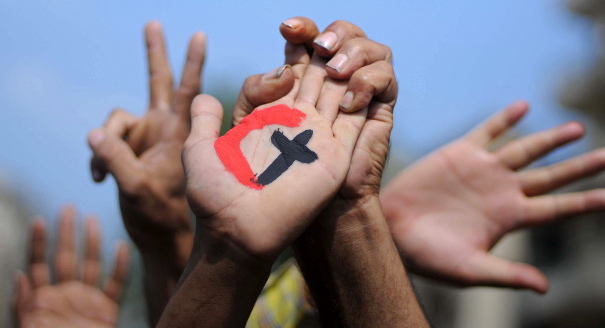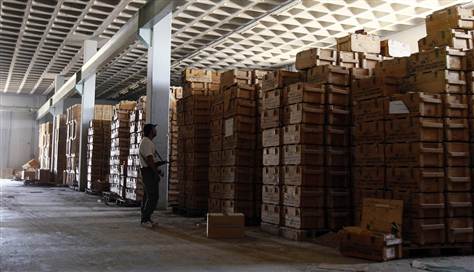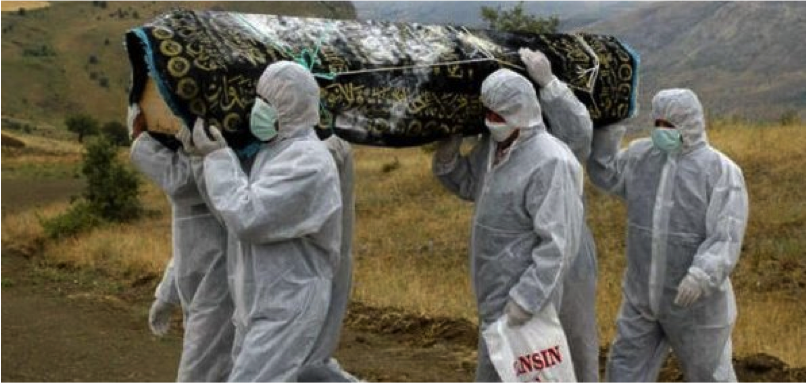This article is from the editorial team at atlantic-community.org
Memo 43: While atlantic-community.org members generally agree that military intervention in Mali was necessary, they view it as a short-term fix. It should now be seen as the first phase in a long-term commitment to regional development. To avoid the need for military intervention in the future, the transatlantic partners must support the states of the Sahel as a regional bloc in an effort to achieve long-term stability.
The states of the Sahel are too weak to address their problems alone. If they are to consolidate their development and security, they will require the support of Europe and the United States. As outlined in the policy recommendations below, this must come in three areas: support for regional cooperation; reinforcement of security institutions; and improved social development. The transatlantic partners should realize that it is in their own core security interests to provide such support.
POLICY RECOMMENDATIONS
- Support for regional cooperation.
The region’s porous borders necessitate that the Sahel states, which stretch from Eritrea in the east to Senegal in the west, work together to confront their problems. The political framework for regional cooperation exists, through organizations such as ECOWAS. Moreover, the African response to events in Mali demonstrates a collective willingness to confront regional crises. Collective action, however, will require support and guidance. NATO should take the lead on this and act now. It must build on the practical and logistical support already provided by the EU in Mali, as well as that planned for in the EU military mission for the training of the Malian military (EUTM Mali), to encourage region-wide engagement with issues concerning national and international security (Germain). Algeria must also be encouraged to play a greater role in the region (Lohman) and NATO’s ‘Building Integrity Programme’ should be extended to the Sahel region, to reduce the risk of corruption in the security and defense sectors (Marczewska).
- Reinforce security institutions in the Sahel.
Three key steps must be taken toward improving the region’s security institutions: creating efficient and capable militaries; regulating the employment of mercenaries; and implementing border controls. These initiatives should use Mali as a starting point on which to build region-wide programs.
2.1 Long-term commitment to military training.
Training forces, such as those involved in EUTM Mali, must remain committed to Mali until it is clear that Malian forces can adequately defend the Malian state. It must also be ensured that the planned training on human rights is made a priority and that the importance of civilian control over the army is emphasized (Mitchell). EUTM Mali should also include the creation of a specialized Malian counter-terrorism unit, capable of intervening rapidly when needed (Lohman). This should form the basis of a region-wide counter-terrorism initiative (Mitchell).
2.2 Tighten regulations on the employment of mercenaries.
Better prepared and trained state militaries, as outlined above, will help to eliminate the need for weak governments in the region to employ mercenaries (Tekir). This is particularly important considering that Muammar el-Qaddafi’s employment of mercenaries to fight for him in Libya directly contributed to the problems in Mali. The United States and Europe must also lead efforts to implement more prohibitive legal regulations on mercenaries. This involves updating and synchronizing international treaties: Additional Protocol I and II to Article 47 of the Geneva Convention; the Organisation of African Unity Convention for the Elimination of Mercenaries in Africa; and the International Convention against the Recruitment, Use, Financing and Training of Mercenaries. To enforce stricter regulations on mercenarism, Western states will have to accept stricter regulations on the activities of Private Military Companies (PMCs). This is necessary in order to eliminate the loop-holes used to subvert regulations today (Fix). However, a balance must be found in regulating the activities of PMCs and mercenaries so as not to drive PMCs underground (Tekir).
2.3 Create the “Sahel Border Security Initiative.”
The transatlantic partners must aid the countries of the Sahel in implementing more effective border control programs. Providing for security in Mali should be the primary concern. ECOWAS troops, mandated by UNSCR 2085, should initially reinforce the Malian army in the task of controlling the borders. The current use of surveillance drones and satellite surveillance capabilities to secure borders in Mali should be extended region-wide (Galamas and Azevedo).
All existing border programs should be consolidated into a single one, named the “Sahel Border Security Initiative.” This would reduce costs and promote greater efficiency. This initiative should involve all Sahel states, the US, the EU and relevant organizations with experience in border control and counter-trafficking assistance activities, such as the Organization for Security and Cooperation in Europe, the World Customs Organization, the United Nations Office on Drugs and Crime, the UN Counter-Terrorism Committee, and INTERPOL. It should focus on training and implementation of new technologies for border control (Galamas and Azevedo). To support this, agents from Western border control agencies should be sent to states currently threatened by destabilization, to provide expertise, training, and consultation (Bullen). The entry of drugs into West Africa should be countered by shifting some of the European Union’s maritime forces deployed off the coast of Somalia to West African waters (Galamas and Azevedo).
- Improve social development.
The transatlantic community should support social initiatives aimed at reducing the appeal of extremism and violence. This should involve facilitating dialogue between ethnic groups and helping to develop effective educational initiatives.
3.1 Facilitate dialogue between ethnic groups.
In Mali, the EU should mediate and facilitate dialogue between the government, Tuareg, and all other ethnic communities. An agreement should involve the disarmament and demobilization of Tuareg insurgents in exchange for better provision for socio-economic development and some degree of political autonomy. In the short-term, a Tuareg representative should be nominated in the Malian Government to work on this issue. In the medium term, if political conditions allow it, the implementation of a Regional Assembly should be considered to work in coordination with the Malian government in order to devise the best policies for the region (Galamas and Azevedo).
Mali should be used as a starting point for similar dialogues throughout the Sahel, focused on creating inclusive mechanisms of governance which incorporate all ethnicities. They should also encourage development through humanitarian relief and government support and provide a legitimate venue to present grievances (Powers). An effort must also be made to include women in this process (Marczewska).
3.2 Help the Sahel states to design and implement effective educational initiatives.
The inability of weak governments to govern effectively and democratically is a root cause of many problems in the Sahel. Organizations, such as the OSCE/ODIHR, should be given greater funds to increase their ability to consult and train governments in-situ (Laird). Foreign aid should be used to provide for greater literacy at the elementary level, as a means by which to fight extremism on an ideological level (Laird). This is not just a case of allocating the aid, but also of helping governments to use it effectively. The EU and North America should help to design a secular curriculum which focuses on the preservation of local culture, language, and history (Kumar). Government provision for education should also be linked to civil and community groups, capable of supporting these initiatives on a regional level (Ayodele).
Bonnie Ayodele (Nigeria) teaches Political Science and International relations at Ekiti State University, Ado Ekiti, Nigeria.
Rui Azevedo (Portugal) is an officer in the Portuguese Army, completing his Master’s in Strategy at Instituto Superior de Ciências Sociais e Políticas, and a member of the Young Atlanticist NATO Working Group from the United States NATO Council.
Samuel Bullen (United Kingdom) is a Masters student in Conflict, Security and Development at the University of Sussex.
Derek Catsam (United States) is Foreign Policy Association’s Senior Blogger for Africa and an Associate Professor of History at University of Texas of the Permian Basin.
Liana Fix (Germany) is a Mercator Fellow on International Affairs, working on European-Russian relations at the German Federal Foreign Ministry, the EU Delegation in Georgia and Carnegie Moscow.
Francisco Galamas (Portugal) is an international security and nonproliferation analyst and member of the Young Atlanticist NATO Working Group from the United States NATO Council.
Timothee Germain (France) is a research fellow at the Center for International Security and Arms Control Studies (CESIM) in Paris.
Vikas Kumar (India) is Assistant Professor of Economics at Azim Premji University, Bangalore.
Ciaran Laird (Ireland) has an MA in History of International Relations from University College Dublin.
Annette Lohmann (Germany) is director of the Friedrich-Ebert-Stiftung in Mali.
Natalia Marczewska (Poland) has previously worked on human rights issues at the European Parliament and is currently working on NATO-Russia relations.
Courtenay Mitchell (United Kingdom) is an editor at atlantic-community.org.
Paul Melly (United Kingdom) is a journalist and Associate Fellow for the Africa Programme at Chatham House.
Alexander Homan Neill (United States) is a Master’s student in African Studies at Stanford University.
Sam Powers (United States) is a MSGA candidate in the Center for Global Affairs at New York University SCPS.
Landry Signé (United States) is Banting fellow and lecturer at Stanford University’s Center on Democracy, Development and the Rule of Law.
Gökhan Tekir, (Turkey) is a graduate student studying International Relations at Bilkent University.
Atlantic Memos showcase the best ideas and arguments from debates in the Open Think Tank on www.atlantic-community.org. Please take the next step and help us spread the word. You can download a PDF copy of this Atlantic Memo to distribute to your local or national decision-makers. The recommendations expressed above come from your Atlantic Community.
To read a response from Dr. Thomas Bagger, head of the Policy Planning Staff at Germany’s Federal Foreign Office, click here.




